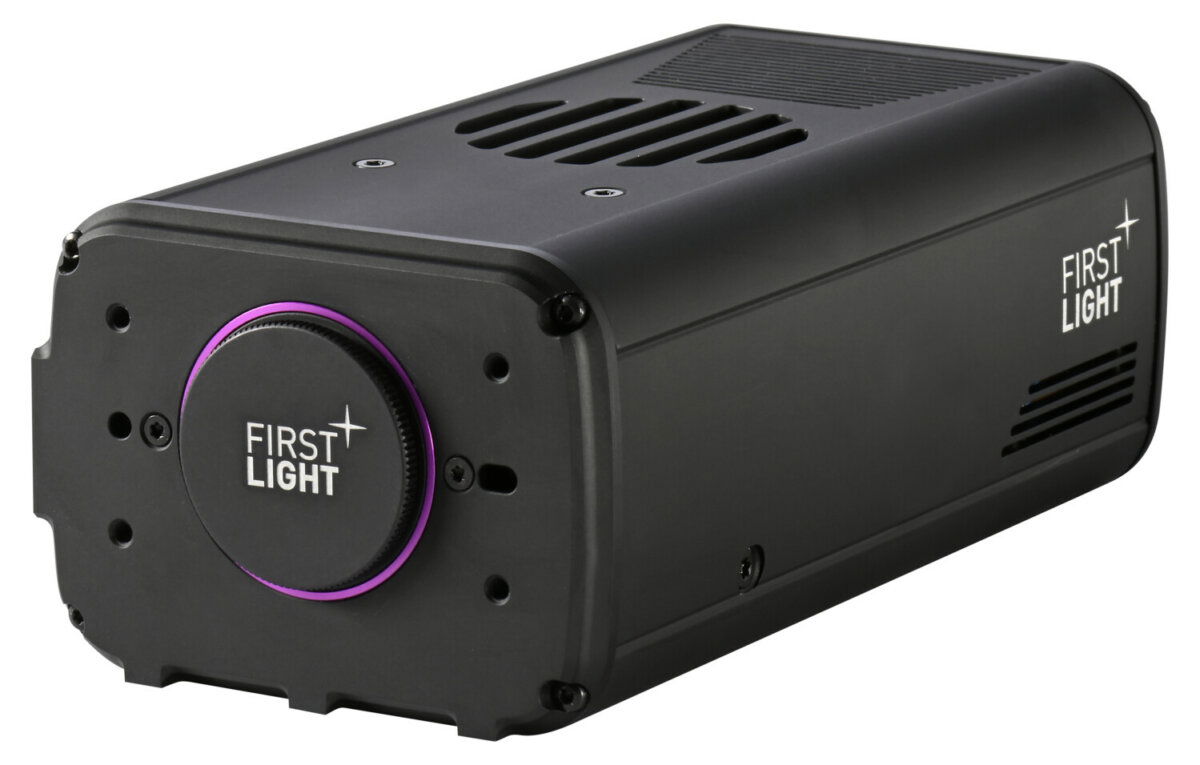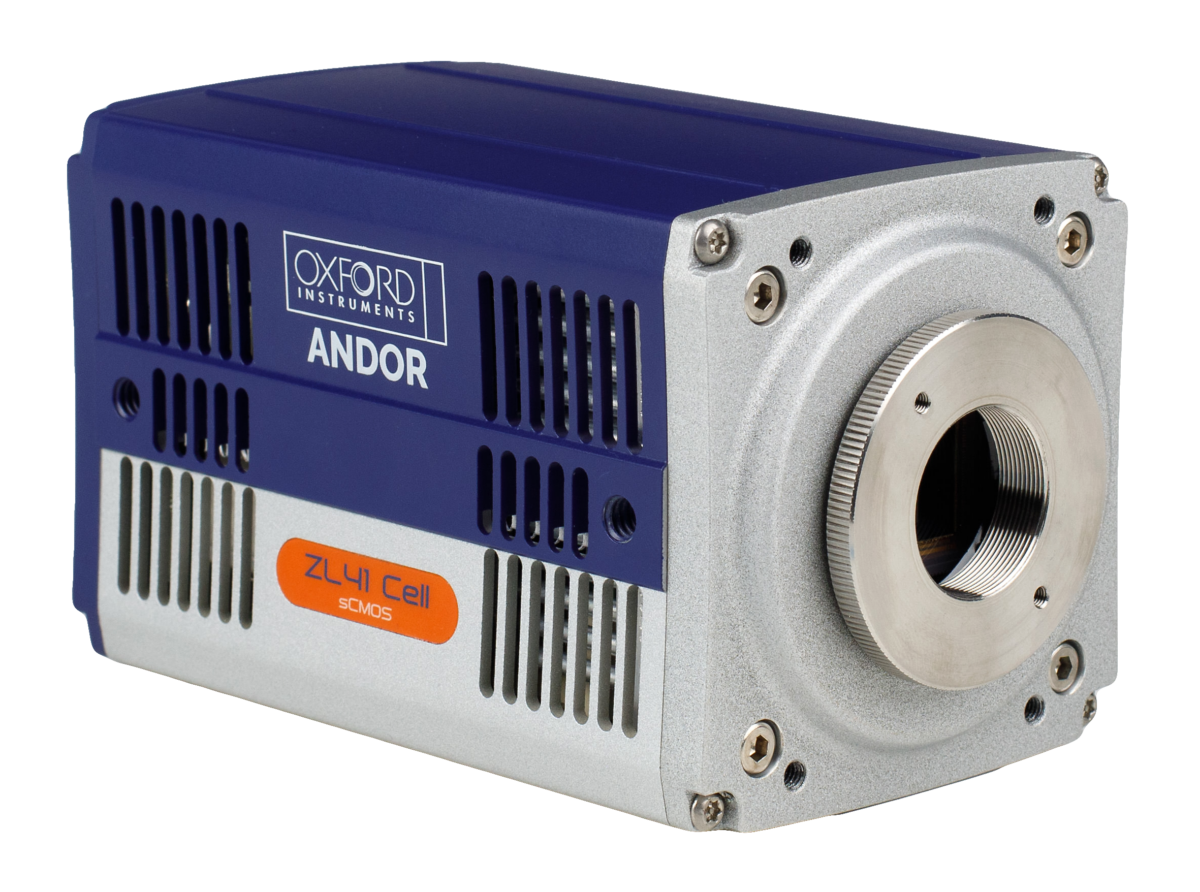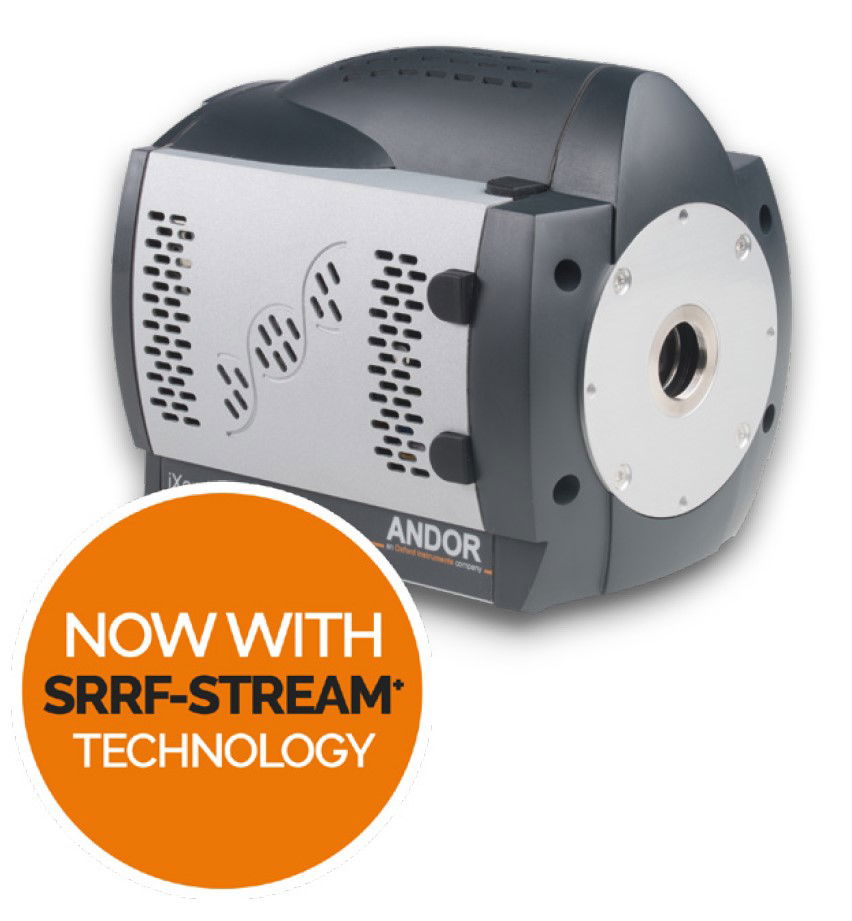C-RED 2 SWIR cameras
- Technologie
- Life Science Cameras
- Partner
- Andor Technology
La C-RED 2 est une caméra infrarouge à ondes courtes (SWIR) ultra-rapide et à faible bruit conçue pour des applications exigeantes en science, recherche et industrie. Elle est équipée d’un détecteur InGaAs 640 × 512 avec une taille de pixel de 15 µm et un obturateur électronique supportant des temps d’intégration inférieurs à 5 µs.
Capable de capturer jusqu’à 600 images par seconde à pleine résolution, la C-RED 2 offre une sensibilité exceptionnelle avec un faible bruit de lecture et un courant d’obscurité, permettant la détection de signaux très faibles. Ses fonctionnalités avancées incluent le fenêtrage, des lectures multiples non destructives et un mode à haute gamme dynamique (93 dB, 16 bits), tout en maintenant une excellente linéarité. Avec des temps d’exposition allant de microsecondes à 60 secondes, la caméra s’adapte à une large gamme de scénarios.
Les options de refroidissement par air et par eau permettent de stabiliser la température du capteur jusqu’à -40°C, et l’interface d’objectif C-Mount avec plusieurs points de montage assure une intégration facile dans le système. Conçue pour l’imagerie SWIR haute performance, la C-RED 2 répond aux besoins des environnements complexes et difficiles.

Caractéristiques de la gamme
Un aperçu de ce qui est dans la gamme
Caractéristiques clés
- Capteur InGaAs 640 × 512
- Sensibilité SWIR : 0,9 – 1,7 μm
- Pas de pixel de 15 µm
- 80% d’efficacité quantique de crête (QE)
- Jusqu’à 600 fps en pleine trame
- Bruit de lecture de 23 e⁻
- Plage dynamique de 93 dB avec une sortie 16 bits réelle
Applications cibles
- Astronomie & optique adaptative
- Microscopie par fluorescence
- Détection de front d’onde
- Imagerie en faible visibilité
- Imagerie hyperspectrale
- Inspection de semi-conducteurs
- Contrôle de qualité et de production
Developmental biology
Studies on small animals are essential for investigating the developing organism and the progression of tumours and other disease states. Imaging in the NIR-II window (SWIR) makes it possible to image tissues and organs in these thicker samples without the scattering and absorption that occur in the Vis/UV part of the spectrum. InGaAs-based detectors offer high sensitivity within the NIR II window (SWIR) that is not possible with typical sCMOS and CCD-based detectors. The C-RED series is optimised for imaging dynamic processes in thick samples, such as blood flow, as well as slower processes, such as organ development or the microstructure in a growing tumour.
Neurophysiology
C. elegans and Drosophila are valuable models for many neurophysiological studies. However, some questions can only be answered with larger and more complex models. Conventional imaging in the UV/Vis range is often impaired due to scattering and absorption. Switching to markers and wavelengths in the NIR-II window (SWIR) solves the problem, but typical detectors respond little or not at all in this part of the spectrum. Therefore, alternative imaging sensor technologies such as InGaAs are required. With the latest generation of InGaAs detectors, C-RED cameras offer high sensitivity across the entire NIR-II window, combined with high-speed capabilities over wide fields of view. C-RED cameras are ideal for many neurological imaging applications – they capture the dynamics in neural networks or observe the intricacies of the nervous system as it develops in a model organism.
Biophysics
NIR-II imaging enables greater penetration depth, higher signal-to-background ratio and better spatial-temporal resolution, making it attractive to many researchers who want to study thicker tissues, organs and entire animal models. New NIR-II labels with improved binding specificity, brightness, and lower biotoxicity are needed. Another new area of interest is the development of single-molecule photosensitizers in the NIR-II window (SWIR), which would enable precise image-guided destruction of tumours. These and other areas of research require an understanding at the level of small or single molecules. The C-RED camera series is designed for such demanding and quantitative measurements. High sensitivity in the NIR-II range (SWIR) is combined with low noise, high speed and high dynamic range.
Available model variations
The C-RED 2 is the standard among cooled SWIR cameras with a broad, highly sensitive spectral range from 0.9 to 1.7 µm and very high frame rates of up to 600 fps in full frame. The C-RED 2 combines proprietary dark optimisation technologies with deep cooling, which minimises thermal noise according to the exposure time, enabling the best signal-to-noise ratio to be achieved across a range of test conditions. C-RED 2 ER with an extended high-sensitivity spectral range from 1.1 to 1.9 µm or 1.2 to 2.2 µm and a very high frame rate of up to 600 fps in full frame. The C-RED series features a unique high dynamic range mode designed specifically for uncompromising imaging. In this mode, the high and low capacity signals are linearly combined using a patented sensor readout method. This enables the camera to achieve a dynamic range of 93.6 dB with a true linear 16-bit response. C-RED Lite is a very compact, temperature-stabilised SWIR camera. A true global shutter is supported by integration pulses of less than 5 μs when temporal precision across the entire field of view is required. This avoids the temporal distortion that can occur with high-speed rolling shutter designs.
Qu’est-ce qui est dans cette gamme ?
Toutes les variantes de la gamme et une comparaison de ce qu’elles offrent
| Model | C-RED 2 | C-RED 2 ER | C-RED 2 Lite |
|---|---|---|---|
Technology | InGaAs | InGaAs | InGaAs |
Sensor format | 640 x 512 | 640 x 512 | 640 x 512 |
Pixel size (µm) | 15 | 15 | 15 |
Spectral range (µm) | 0.9
| 1.1 to 1.9 µm (1.9) and 1.2 to 2.2 µm (2.2) | 0.9
|
QE max (%) | 85 | 82 (1.9) 85 (2.2) | 80 |
Cooling (°C) | -40 | -40 (1.9µm model) -55 (2.2µm model) | 25 stabilisiert |
Frame rate (full screen) Higher frame rates with ROI | 600 fps | 600 fps | 600 fps |
Readout noise | 23 | < 32 (1.9µm model) < 36 (2.2µm model) | 28 (@ 5°C gekühlt) |
Dark current (e-/pix/sec) | 310 @ -40°C | 19,500 @ -40°C (1.9µm Modell) 130,000 @ -55°C (2.2µm Modell) | 25,000 @ +5°C |
Dynamic (e-) | 1,400,000 | 1,500,000 | 1,400,000 |
Shutter type | Global | Global | Global |
Interface | USB 3.1 Gen 1 Camera Link | USB 3.1 Gen 1 Camera Link | USB 3.1 Gen 1 Camera Link |

